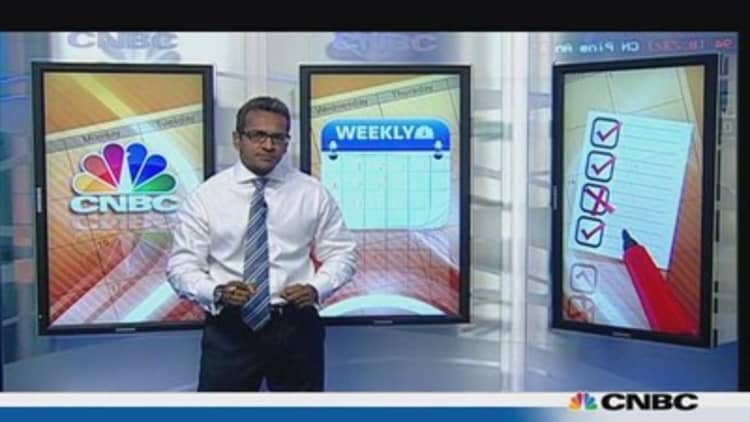Stronger-than-expected December U.S. retail sales data and a record Japanese current account deficit helped push the U.S. dollar higher against the yen on Tuesday while mixed signals among European central bankers kept the euro in check.
The greenback rebounded after two days of losses, backed by a report showing U.S. consumers spent more than expected in December which contrasted against last week's weak U.S. jobs report.
Apart from the jobs data, the prospects of the U.S. economy having gained steam in the fourth quarter were bolstered by the retail sales data and news of an increase in business inventories in November.
Stronger economic performance bolsters the case for the to continue scaling back its extraordinary efforts to boost the economy and let it run on its own steam.
Most banks see a strong case for the dollar to rise this year, given the contrasting outlooks for monetary policy in the United States compared with Europe and Japan, whose central banks are still considering more moves to support growth.
That suggests that a sell-off on Wall Street and of the dollar since weak employment data last Friday may just be a corrective pause that clears the way for gains, though the jury is still very much out.
The U.S. Commerce Department said on Tuesday retail sales excluding automobiles, gasoline, building materials and food services - or core retail sales - increased 0.7 percent last month versus a consensus estimate for a 0.3 percent rise. November data was however revised lower.
In Tokyo, the government reported a record current account deficit in November as a bulging trade deficit weighed on the country's balance of payments.
The traded up 0.7 percent to 103.71 yen, recovering after a more than 1 percent drop on Monday that saw it hit a roughly one-month low of 102.85 yen.

"On the surface, this data supports those anticipating yen weakness, at least to the extent that large current account deficits tend to put downward pressures on a country's currency (a supply/demand argument, in text book terms). But in Japan's case, a persistently wide current account deficit will be a drag on GDP and in that sense, it may be an impediment to the success of Abenomics," Robert Lynch, currency strategist at HSBC wrote clients.
Broadly, however, the dollar was slightly weaker against a basket of currencies made up of its largest trading partners. The dollar index was up 0.1 percent to 80.59.
In Europe, Austrian central bank governor Ewald Nowotny gave an upbeat assessment of Europe's economic prospects, underpinning the euro.
Conflicting signals
The euro touched a two-week high against the dollar in early trade after Nowotny, a senior player at the European Central Bank, said euro zone growth may surprise on the upside, although strategists cautioned that ran contrary to the concern expressed over the economy by the bank as a whole last week.
"After (ECB President) Mr Draghi's comments last week, Mr Nowotny's comments represent conflicting signals and make one cautious on buying the euro in response," said Valentin Marinov, head of European G10 FX Strategy at Citibank in London.
"There may still be some room for the euro to be squeezed higher but in the medium term we still see the risks to the downside."
Still, euro zone November industrial production numbers also struck a positive note and the euro traded up 0.1 percent on the day at $1.3683.
—By Reuters

